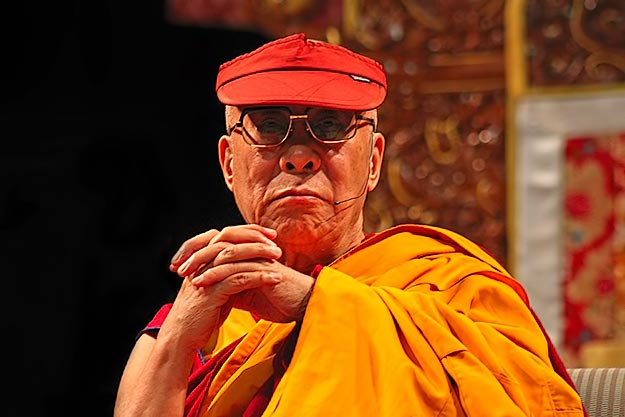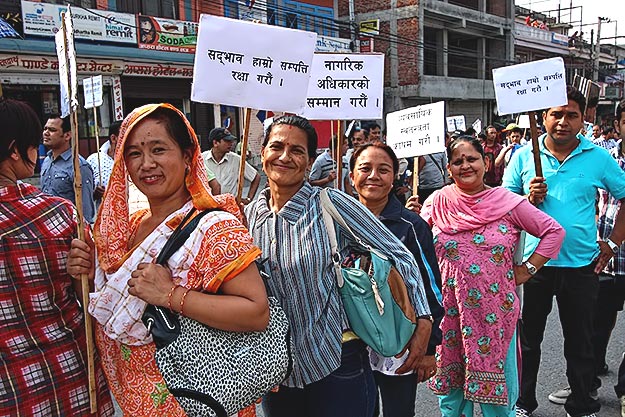About a year ago, I received an email from a woman whose name I didn’t know and cannot now recall. The crux of her dogmatic email was to “inform” me of the true definition of a journalist, and why a travel blogger/writer should not be so presumptuous as to use that title. I replied that I had never used that title, that I considered myself a travel writer. She replied, “Oh, I thought you were one of those who represent themselves as a journalist.”
I hit delete and didn’t give the matter much thought for a couple of years, until my writing style began to evolve. Up to that point, I’d focused on the culture of the destinations I visited, featuring stories about food, language, customs, religion, fashion, architecture, art, music, and dance. The deep, long-lasting friendships I formed with local people often led to frank discussions about the history and politics of a region, and how their lives were influenced by both. It was inevitable that my writing would become more journalistic in nature.

Dalai Lama, at the opening session of the 2010 Kalachakra for World Peace conference in Washington D.C.
My first foray into journalistic writing may have been in 2010, when I was invited to be a member of the press corps covering the Dalai Lama, who was in Washington D.C. to bestow the Kalachakra initiation upon 14,000+ followers of Tibetan Buddhism. Since then, I have covered political demonstrations in Nepal, written about Hungary’s ongoing attempt to rewrite their World War II history, about the secret war in Laos that left the country with tons of unexploded ordinance that still kills and maims thousands of people each year. Most recently, I wrote a fairly scathing piece about the woefully inept government tourism agencies in Slovenia.
At the same time, the question of whether travel bloggers/writers are journalists is being more stridently discussed within our industry. My initial detractor insisted that one must have a degree in journalism from an accepted university before using the title, but when I looked up the definition I found no such restriction.
Merriam Webster defines a journalist as:
a : a person engaged in journalism; especially: a writer or editor for a news medium
b : a writer who aims at a mass audience
c: a person who keeps a journal
Certainly, I qualify in all three cases, especially since I have been published in numerous print magazines, newspapers, and online news sites. But do I meet the criteria set forth by professional associations who represent journalists? The American Press Institute defines journalism as, “the activity of gathering, assessing, creating, and presenting news and information. It is also the product of these activities.” They go on to state that two things separate journalists from the average person.
“The first is motive and intent. The purpose of journalism is to give people the information they need to make better decisions about their lives and society. The second difference is that journalism involves the conscious, systematic, application of a discipline of verification to produce a “functional truth,” as opposed to something that is merely interesting or informative. Yet while the process is critical, it’s the end product – the “story” – by which journalism is ultimately judged.”

Nepali people demonstrate against political strikes that debilitate the country as it tries to promulgate a new constitution
In this era of round-the-clock news, when everyone has the ability to snap a photo or upload a blog post, defining who is or is not a journalist may be the wrong question. According to the American Press Institute, journalism can be produced by anyone, however “the journalist places the public good above all else and uses certain methods – the foundation of which is a discipline of verification – to gather and assess what he or she finds.”
The Society of Professional Journalists appears to agree. A resolution submitted to and approved by the Excellence in Journalism Conference in Anaheim, CA. on August 26, 2013 states, “the Society believes that journalists should not be defined by the mediums in which they work, the percentage of their incomes derived from journalism work, their education, their employer, or any other specific criteria that would limit their abilities to inform the citizenry.”
While the bulk of my writing is still travel related, what most intrigues me are situations that allow my writing to have a distinctly journalistic bent. And yes, I now consider myself a journalist. Looking back, I always have been.
When Barbara Weibel realized she felt like the proverbial “hole in the donut” – solid on the outside but empty on the inside – she walked away from corporate life and set out to see the world. Read first-hand accounts of the places she visits and the people she meets on her blog, Hole in the Donut Cultural Travels. Follow her on Facebook or Twitter.
Photo Credit: Rhianon Lassila
